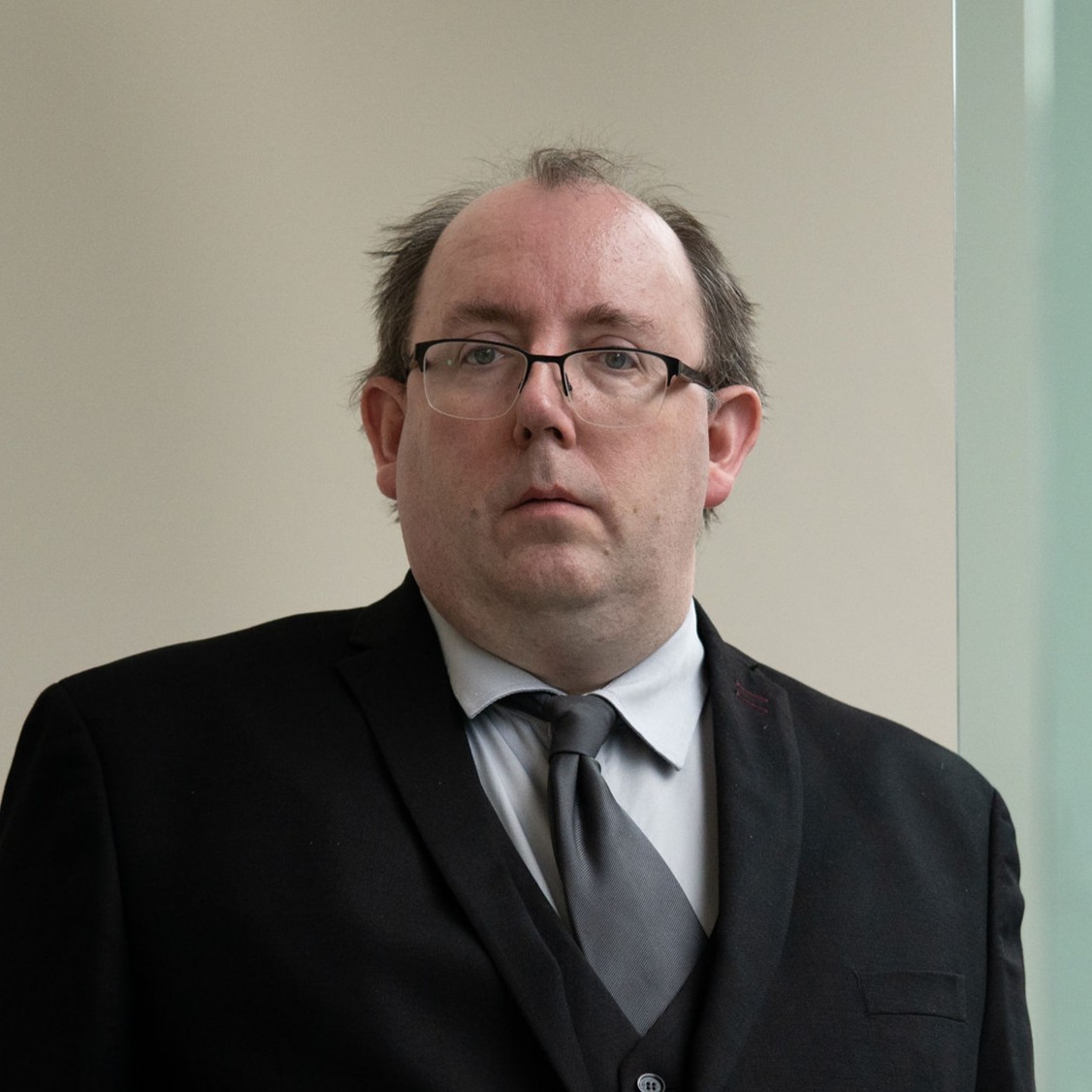Wills & Trusts
A Will is one of the most important documents we will need in our life, yet statistics show barely 40% of adults have a Will. Writing a Will gives you the opportunity to choose not only who will administer your estate when you die, but also who will inherit your assets. A will can be as simple or as complex as you need and our private client team are here to help you create a Will which meet all your needs.
To get started, click the button below to complete an initial enquiry questionnaire, and return to Colleen Dooney (Wills, Trust & Probate Operations Director) at [email protected]. Alternative call us on 0114 266 6660
When making a Will, you should consider the following:
Executors & Trustees of your Will
Who will be the executors & Trustees of your Will? It is important your Executors are responsible and trustworthy people, who ideally can get along with one another. Anyone over the age of 18 can be an executor (exceptions apply i.e. if they have been declared bankrupt), even someone who will be inheriting from your estate (your beneficiary). If you struggle to think of a suitable executor, Wake Smith Solicitors would be happy to be appointed to assist your loved ones in a difficult time.
Funeral Wishes
Many people decide they would like to include a note in their Will regarding their wishes for their funeral arrangements. Although funeral wishes are not legally binding, it can provide guidance to your Executors as to your wishes.
Guardianship Provisions
Do you have minor children under the age of 18 years? Writing a Will gives you the opportunity to appoint guardians for your minor children. Although this is a difficult decision, it is worth taking the time to discuss further with your family and friends and deciding what would happen in the devastating scenario of your child/children losing both their parents.
Pet Provisions
For most people, having a pet is a huge and fulfilling part of life and a pet is often considered as a member of the family. But have you thought about what would happen to your pet if you died? A Will allows you to make special provisions for the future care and welfare of your pet in the event of your death.
Specific Gifts
Many people wish to leave specific items of sentimental value to family and friends under their will. This could be a painting, your wedding ring, watches and jewellery or musical instruments. Some even wish to leave a sum of money to their grandchildren as a token gift. You can also leave your personal items to your Trustees for them to distribute at their discretion. It is important to ensure you prepare a letter of wishes and store this with your Will to outline who you would like to get what. This letter can change in the future, without you having to change the Will itself.
Gifts to Charity
Some people decide they would like to leave a charitable cash legacy to a charity close to their heart under their Will. A gift to charity comes with tax advantages, as the gift itself is exempt from inheritance tax. You can also reduce the overall inheritance tax rate on the rest of your estate from 40% to 36% if you leave at least 10% of your ‘net estate’ to a charity.
Beneficiaries
This may seem like an obvious consideration, but it is important you have thought about your choice of beneficiaries (the person or people who you wish to inherit your etate). If your beneficiaries are minors then it is key to think how old you would want them to be before they inherit, for example at the age of 18, 21 or 25.
Trusts
A trust is a legal arrangement whereby your appointed trustees hold assets on behalf of your choice of beneficiaries, keeping the control away from the beneficiaries themselves. Trust arrangements can be made during your lifetime or/and under your will. This might be useful if you want to protect family assets from young or incapable beneficiaries. You may want to place your share of a property into a trust after your death, under a will trust, to ensure it is retained for the future, for your chosen beneficiaries.
Trusts have their own complex tax rules and can require a lot of management therefore it is essential to receive expert advice to ensure whether or not a trust is suitable for you.
Inheritance Tax Planning
On your death, your estate will be assessed on your potential inheritance tax (IHT) liability. This is a charge on any assets you own at the date of your death, alongside any gifts you may have made in the 7 years up to your death (please note not all gifts are taxable) and if you give away assets in your lifetime but retain use of it.
When making your Will with us, we can assess the potential IHT liability on your estate. Inheritance tax can be a complicated area of law to understand but our experienced team are able to assist you in understanding what it means to you and your family. We can then discuss how to reduce your potential liability to maximise the amount you leave to your loved ones.
How can Wake Smith help?
If you would like to speak to a member of our private client team in Sheffield about Wills & Trusts, we will be happy to assist. Firstly we will arrange to meet with you to get a full understanding of your personal circumstances, answer any questions that you may have and ensure you receive the very best advice, tailored to your particular needs.
Our Fees
Our fee rates are £320 plus VAT (charged at 20%) for a single straight forward will. £520 plus VAT (charged at 20%) for a mirror husband and wife will. Please note this is subject to change depending on the complexity of the Will.
If we are looking at trusts of inheritance tax planning you need to contact us to get a quote. If you would like a quote please click here and fill in our will questionnaire.
Wake Smith is recommended in The Legal 500* for its personal tax, trusts and probate expertise.
FAQs
What are mirror wills?
Mirror wills are wills made by a couple (usually spouses or civil partners) where the contents are “mirror images” of each other. So, for example, a husband might leave everything he owns to his wife and she might leave everything she owns to him. Both wills would provide that the couple’s combined assets would pass to their children once both spouses have died.
Why do I need to make a will?
A properly written and witnessed will is the only way to ensure that your assets will be passed on to the people you choose in the event of your death. It is also a useful place to record your funeral wishes and to make provision for your children to be taken care of by your chosen guardians. A professionally drawn will may also allow you to maximise the use of tax exemptions and protect assets from local authority means testing for care home fees.
What will happen if I do not make a will?
If you don’t make a will then your assets will be divided between your relatives in accordance with the intestacy rules. This might mean that your assets end up with distant relatives who you have no contact with and that conversely friends who you might wish to benefit receive nothing at all. If you die and you have no relatives at all then all of your assets will pass to the Crown as “bona vacantia”. In other words, the government of the day will receive your hard-earned cash!
If I haven’t made a will does my partner automatically receive my assets?
It depends. If you are married or in a registered civil partnership and you have children then the intestacy rules say that your spouse or civil partner will receive all of your personal belongings and the first £250,000 of your estate. The balance of the estate will be divided equally between your children on the one hand and your spouse or civil partner on the other. If you don’t have children then your spouse or civil partner will inherit everything you own.
If you have a partner but you are not married or in a registered civil partnership with them then should you die intestate your partner will not be entitled to anything from your estate. Note that there is no such thing as a “common law spouse” so it doesn’t matter if you’ve lived with your partner for many years – they still won’t be entitled to receive anything.
The intestacy rules only apply to assets that you own in your sole name, though. So, if you own a bank account jointly with your partner, the balance in that account will pass automatically to your partner when you die. The same goes for jointly owned property (although different rules apply to property which is owned as “tenants in common”).
I have had a divorce/separation, should I make a new will
In a word, yes! It’s a good idea to review your will as soon as you know that the marriage is in difficulty as you presumably won’t want your spouse to inherit your estate if you die before the divorce settlement is finalised. You might also want to speak to your parents about updating their wills, otherwise anything you inherit from them will fall into the “pot” of matrimonial assets to be divided up by the divorce court.
Can my beneficiaries also be the executors of the will?
Yes they can so long as they are over 18 and have not been made bankrupt. Sometimes it’s advisable to have an independent executor as well to make sure that there is no conflict of interest, but for a straightforward will there’s usually no reason why one or more of the beneficiaries shouldn’t act as executors.
I am getting married soon, should I make a joint will?
We wouldn’t recommend a joint will, but we would certainly advise you to make a will. Any will that you’ve made previously will be automatically become null and void the moment you get married. So before you say “I do” it’s a good idea to make a new will which states that it is made “in expectation” of your marriage. That way your careful estate planning won’t go to waste.
If I am not from the UK can I make a will in the UK?
Yes, you can, although the will would normally only cover your UK assets. You would need advice from a lawyer in your home country as well to make sure that the UK was recognised by your home country’s legal system and to advise you on any tax issues back home.
Can I make a will if I have property overseas?
Yes you can, although we can only advise you on the legal system in England and Wales. We would usually recommend that you make separate wills to deal with your assets here and abroad and that you take legal advice in the country where the property is situated. Different countries can have very different systems of inheritance to our own, which is why local advice is crucial – for example, French inheritance laws require parents to leave a specified share of their estates to their children. If you make a will in another country it’s vital that it doesn’t revoke your UK will or vice versa, so both wills must be carefully worded to avoid this.
Can I change my will in the future?
You can change your will as many times as you like during your lifetime, so long as you still have “testamentary capacity”. In a nutshell this means that you are mentally capable of understanding what a will is, what assets you own and who you might expect to benefit under the will.
Where should I keep my will?
You need to keep your will somewhere safe as, unlike property ownership, there is no compulsory register of wills in the UK (although there is a register that you can use on a voluntary basis, called “Certainty”). We suggest that you lodge your will with your solicitor or your bank or else keep it somewhere safe at home. If the original will goes missing, your executors may be able to rely on a photocopy of the will, but there will be extra processes to go through to do this, so it is far better if you don’t lose the original document. It’s also important not to write on or mark the original will (and this includes not paper clipping or stapling anything to it) as marks on the will may cause problems with the probate process after your death.
Should I keep a copy of my will?
We will always send you a photocopy of your signed will once it’s complete. It’s a good idea to keep the copy at home so that you can remember what your will says. We recommend you review your will at least every five years to check that it still meets your needs.








